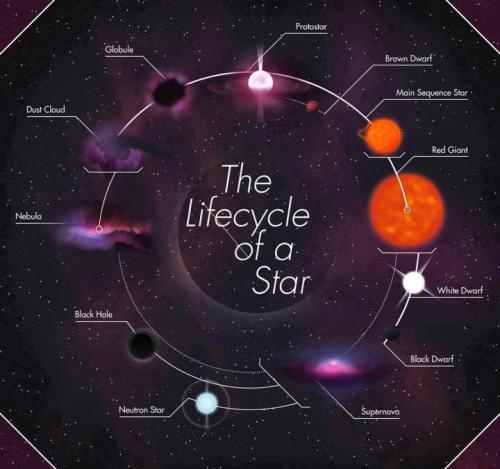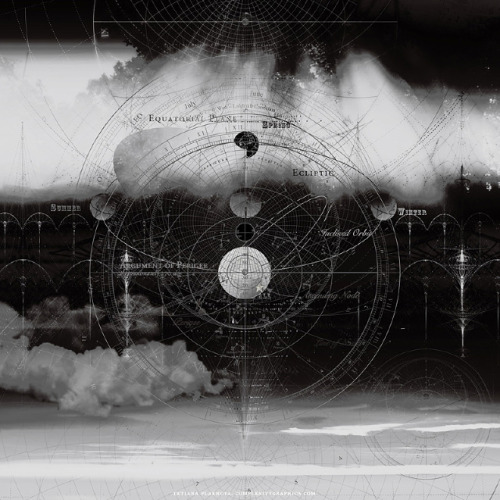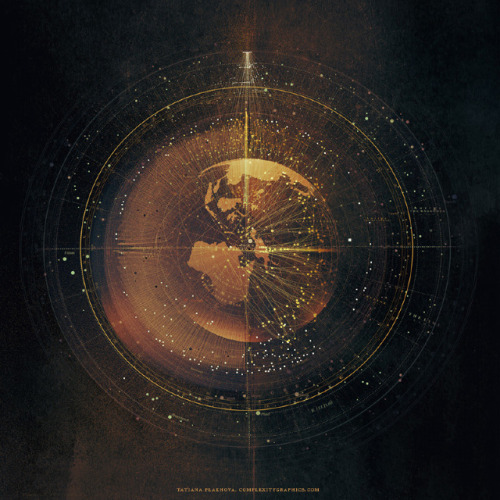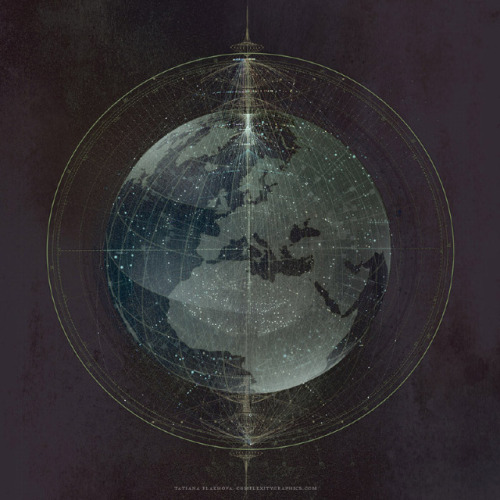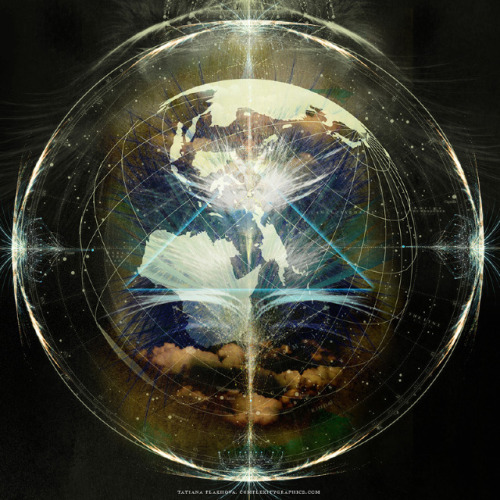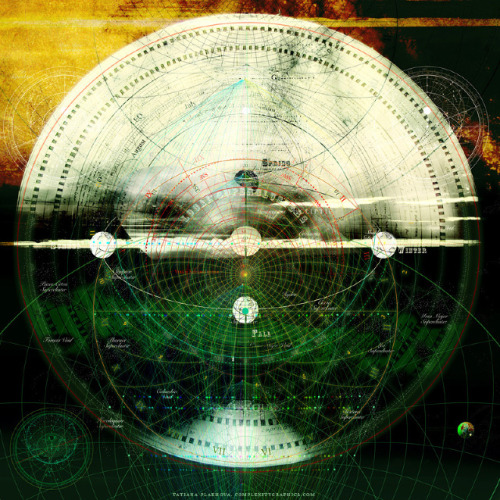It Just Makes Sense

It just makes sense
More Posts from Outofambit and Others

“I wonder how much trouble you get in for busting a worldgate.” // “How can I save her?”
A mix for Kit Rodriguez: Loyalty, Bravery, Empathy incarnate. He will cross time, space, and neighborhoods for those he loves and those he must protect.
Titanium by David Guetta // Sugar, We’re Going Down by Fall Out Boy // The Cave by Mumford and Sons // Shut Up and Dance by Walk the Moon // Boys Are Back in Town by The Hitters // and ten others
Listen (15 tracks, 55 mins)

White dwarfs polluted with planetary debris
The Hubble Space Telescope has found chemical evidence for the building blocks for rocky planets in an extremely unusual place: the atmospheres of two burned-out stars. Called white dwarfs, these stars are small, dim shadows of stars that would have once been like our sun, and they reside 150 light-years from Earth in the young star cluster of Hyades. Hubble’s spectroscopic observations identified silicon and low levels of carbon, both of which are strong indicators of a rocky material similar to that which makes up Earth. “When these stars were born, they built planets,” said Jay Farihi, lead author of the study, “and there’s a good chance they currently retain some of them… Based on the silicon-to-carbon ratio in our study, we can actually say that this material is basically Earth-like.” The material is thought to have ended up in the atmosphere of these stars after they collapsed into white dwarfs, and the larger planets in their solar system nudged asteroids into star-grazing orbits. The stars’ gravitational pull tore the asteroids apart, and the pulverised debris fell into a ring around the white dwarfs and were eventually funnelled inwards to pollute the stars themselves. The discovery suggests that rocky planets may commonly assemble around stars, and may help us to understand what will happen to our solar system in five billion years, when our own sun burns out.
Ocean Ramsey and her team encountered this 20 ft Great White Shark near the island of Oahu, Hawaii. It is believed to be the biggest ever recorded
NGC 4725, NGC 4747, and NGC 4712



see, the thing about the young wizards series is
the thing about diane duane is
she infuses everything with so much life. she gives everything thoughts and feelings and personality. she makes you care about them, makes them matter. from grass chorusing “grow grow grow” to planets explaining how they show affection towards fellow celestial bodies by resonating
it’s beautiful, and it’s vital in the truest sense of the word. and I love it. it’s important on a level that I can’t even fully comprehend. it’s almost spiritual
I never thought of myself as a spiritual person, never felt moved by something larger than me. but the things I’ve read about in this series? the intention and compassion and wonder for all things
that’s something I can believe in
What is an Ocean but a Multitude of Drops?
I’ve been pondering the recurring notion in Young Wizards—introduced in the first book—that “even…unmagical-seeming actions” have importance in the fight against entropy. Whether it’s turning the lights off when one leaves a room, having a kind word for someone in need of encouragement, or just using the bus for transport to an alien mall crawl (“Wizards are supposed to use public transport—it’s ecologically sound!”), these little choices are no less important than galaxy-spanning fights with the Lone Power. And indeed, it’s often the little things—like Nita’s space pen or Ponch’s squirrels—that make the big victories possible.
It’s a concept that recurs in several of my other favorite works of fiction, as well. Rory’s father, Brian, from the most recent season of Doctor Who springs immediately to mind. A down-to-earth sort, Brian spends his screentime changing lightbulbs, carefully watching alien artifacts for days on end, and throwing golf balls for nearby dinosaurs to play fetch with. Unlike most of the Doctor’s associates, he doesn’t progress from these humble beginnings into something “remarkable”—he never becomes immortal or the Bad Wolf or anything like that. But instead, his very mundane habits are exactly what’s needed to save the world on multiple occasions. And when the Doctor offers to let him travel across time and space full-time, his response is simply, “Somebody’s got to water the plants.”
I bring this up because it’s a rather uncommon line of thought, on the whole. Far more common is the desire to change oneself, to journey forth from humble origins and grow into something great, to leave a mark on the world. But examples like the ones I mentioned above suggest that perhaps we’re not on the way to doing something remarkable—we already are, from one day to the next.
In the final lines of Cloud Atlas, both the book and the film (I heartily recommend either, incidentally), one of the protagonists ponders the notion that his efforts to change the world only amount to “a single drop in a limitless ocean.”
"But what is an ocean," he concludes, "but a multitude of drops?"
The same, I think, applies to all of us. We may not all be heroes or luminaries who command the destinies of millions, but within the smaller confines of our individual lives, every choice we embark upon makes a difference. And ultimately, the whole of human history is comprised of nothing else but people making decisions, many of them seemingly unimportant, one day at a time. Taken all together, though, it adds up to something remarkable. No man is an island, and every rock idly tossed into a pond produces ripples.
It’s both encouraging and terrifying to think about.
-
 neutral-sleepy reblogged this · 5 years ago
neutral-sleepy reblogged this · 5 years ago -
 neutral-sleepy liked this · 5 years ago
neutral-sleepy liked this · 5 years ago -
 the-host-with-the-least reblogged this · 5 years ago
the-host-with-the-least reblogged this · 5 years ago -
 the-host-with-the-least liked this · 5 years ago
the-host-with-the-least liked this · 5 years ago -
 schmidty001 liked this · 5 years ago
schmidty001 liked this · 5 years ago -
 kreuzdrache reblogged this · 5 years ago
kreuzdrache reblogged this · 5 years ago -
 kreuzdrache liked this · 5 years ago
kreuzdrache liked this · 5 years ago -
 astrixemily liked this · 5 years ago
astrixemily liked this · 5 years ago -
 nightbearx liked this · 5 years ago
nightbearx liked this · 5 years ago -
 fools-throne liked this · 5 years ago
fools-throne liked this · 5 years ago -
 stalin-the-ballin reblogged this · 5 years ago
stalin-the-ballin reblogged this · 5 years ago -
 stalin-the-ballin liked this · 5 years ago
stalin-the-ballin liked this · 5 years ago -
 whoopstoobad liked this · 5 years ago
whoopstoobad liked this · 5 years ago -
 johnlf3 liked this · 5 years ago
johnlf3 liked this · 5 years ago -
 spiderpigie reblogged this · 5 years ago
spiderpigie reblogged this · 5 years ago -
 the-green-sailor reblogged this · 5 years ago
the-green-sailor reblogged this · 5 years ago -
 the-green-sailor liked this · 5 years ago
the-green-sailor liked this · 5 years ago -
 jhessail liked this · 5 years ago
jhessail liked this · 5 years ago -
 gayward-vagabond liked this · 5 years ago
gayward-vagabond liked this · 5 years ago -
 honeyburger liked this · 5 years ago
honeyburger liked this · 5 years ago -
 bvvgs liked this · 5 years ago
bvvgs liked this · 5 years ago -
 heptorepto liked this · 5 years ago
heptorepto liked this · 5 years ago -
 sulahasbackpain liked this · 5 years ago
sulahasbackpain liked this · 5 years ago -
 terrashards reblogged this · 5 years ago
terrashards reblogged this · 5 years ago -
 maggiekarp2 reblogged this · 5 years ago
maggiekarp2 reblogged this · 5 years ago -
 maggiekarp2 liked this · 5 years ago
maggiekarp2 liked this · 5 years ago -
 chainsngutz liked this · 5 years ago
chainsngutz liked this · 5 years ago -
 stringsandmelodies liked this · 5 years ago
stringsandmelodies liked this · 5 years ago -
 new-bitch-who-dis reblogged this · 5 years ago
new-bitch-who-dis reblogged this · 5 years ago -
 new-bitch-who-dis liked this · 5 years ago
new-bitch-who-dis liked this · 5 years ago -
 oceanblue971 liked this · 5 years ago
oceanblue971 liked this · 5 years ago -
 palo-meme liked this · 5 years ago
palo-meme liked this · 5 years ago -
 the-caged-lion reblogged this · 5 years ago
the-caged-lion reblogged this · 5 years ago -
 amaryllis56-main liked this · 5 years ago
amaryllis56-main liked this · 5 years ago -
 jlkauffman liked this · 6 years ago
jlkauffman liked this · 6 years ago -
 tsutsukemono liked this · 6 years ago
tsutsukemono liked this · 6 years ago -
 ldyenki liked this · 6 years ago
ldyenki liked this · 6 years ago -
 semiotomatics liked this · 6 years ago
semiotomatics liked this · 6 years ago -
 outofambit reblogged this · 6 years ago
outofambit reblogged this · 6 years ago -
 thewordscomealive reblogged this · 6 years ago
thewordscomealive reblogged this · 6 years ago -
 thewordscomealive liked this · 6 years ago
thewordscomealive liked this · 6 years ago -
 jazzhandsmcleg liked this · 6 years ago
jazzhandsmcleg liked this · 6 years ago -
 okforthey liked this · 6 years ago
okforthey liked this · 6 years ago -
 the-book-of-night-with-moon reblogged this · 6 years ago
the-book-of-night-with-moon reblogged this · 6 years ago -
 zoock555-blog liked this · 6 years ago
zoock555-blog liked this · 6 years ago
A personal temporospatial claudication for Young Wizards fandom-related posts and general space nonsense.
288 posts


























